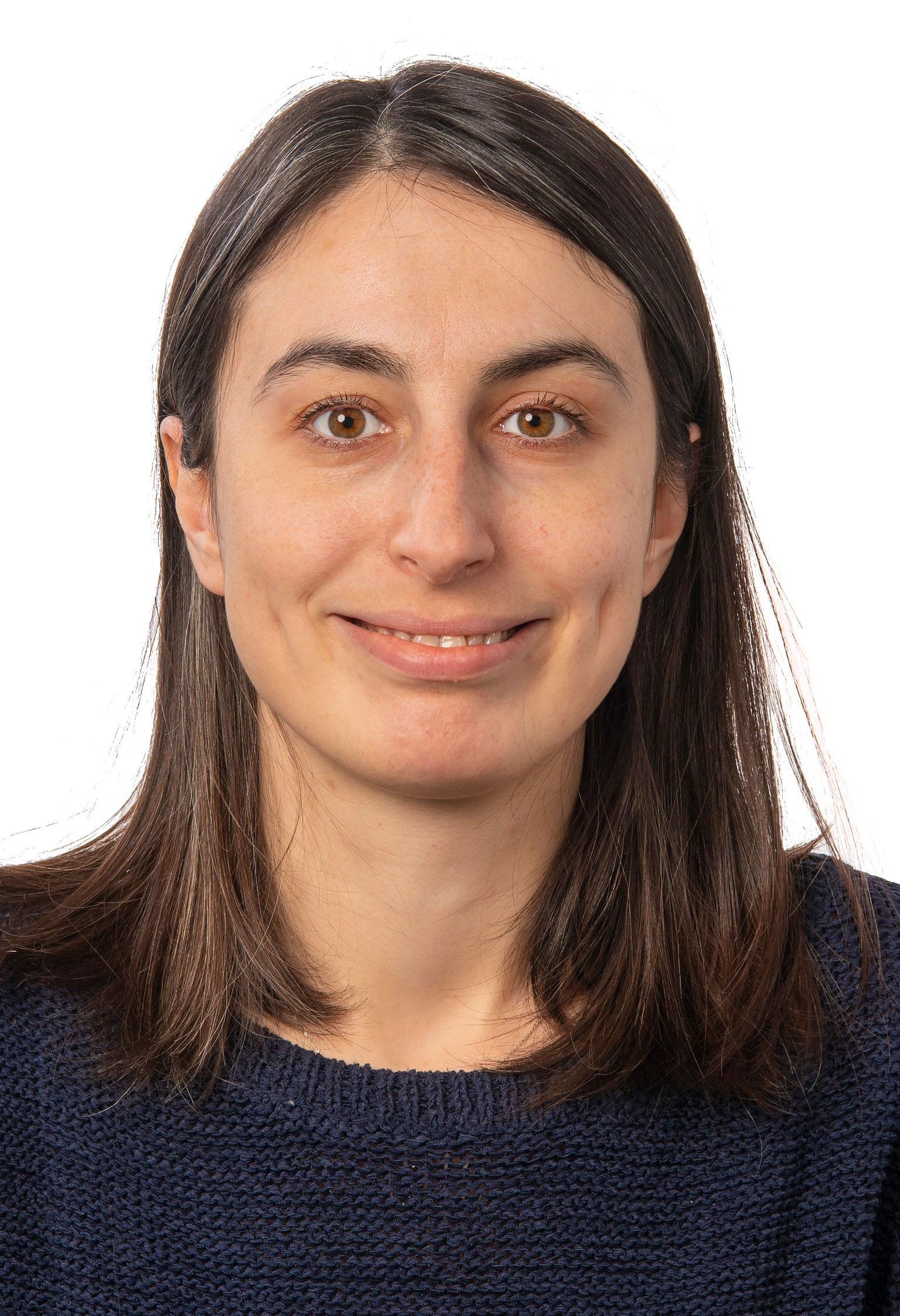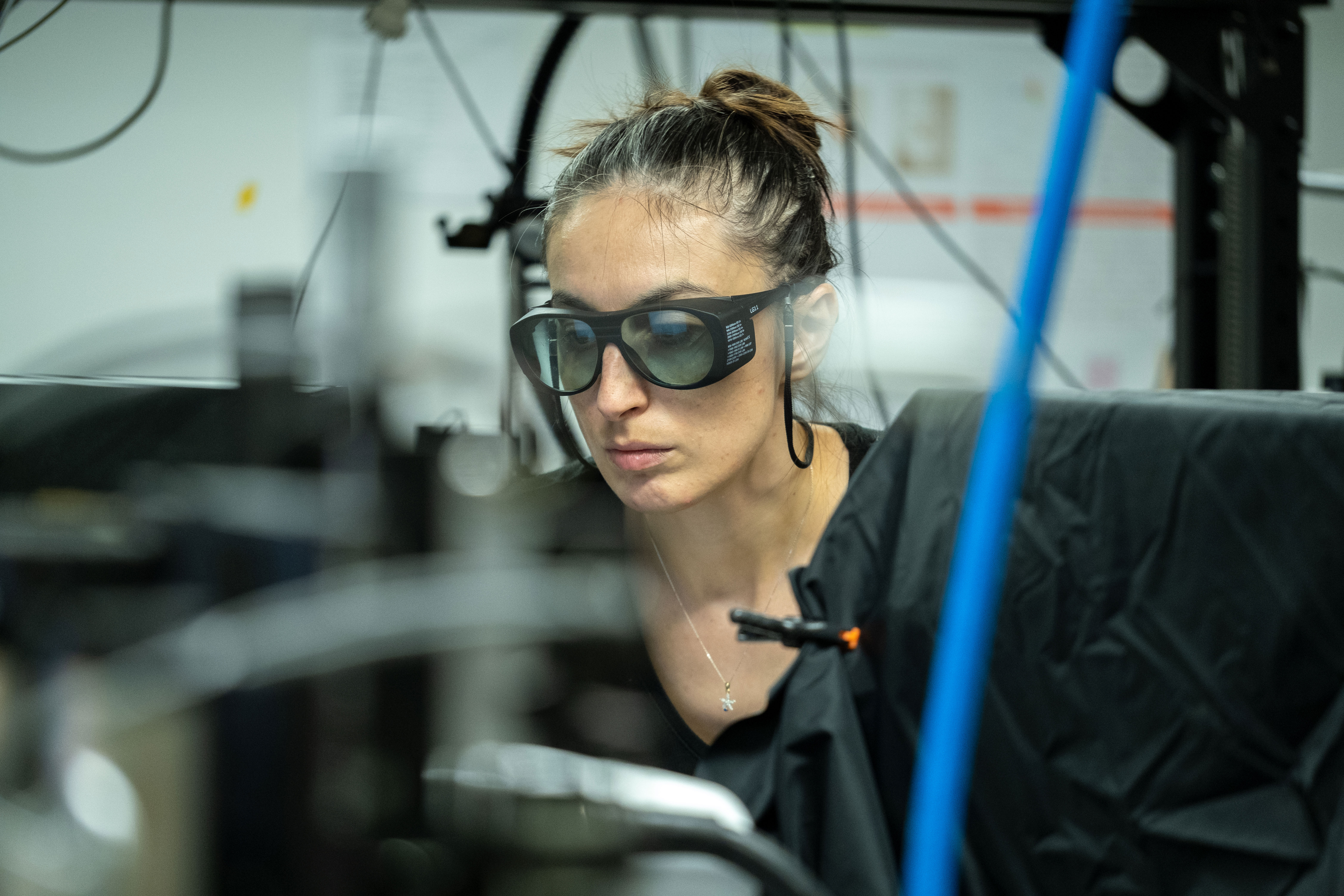Ferda Canbaz
In this installment of Senior Member Insights, OPN talks with Ferda Canbaz, a junior group leader in the department of biomedical engineering at the University of Basel, Switzerland, since January 2021. Canbaz received her bachelor of science degree in engineering physics from Istanbul Technical University, Turkey, in 2011. Following that, she pursued a master of science degree in the optoelectronics and photonics engineering program at Koc University, Turkey, completing it in 2013. In 2018, after successfully attaining her Ph.D. in physics from Koç University, she became a postdoctoral researcher in the department of biomedical engineering at the University of Basel.
Canbaz's research interests encompass a range of topics, including pulsed lasers, solid-state lasers in the near- and mid-infrared regions, biomedical applications of lasers, sensing applications, laser processing and nonlinear optics.
What first interested you in pursuing science?
It all began with my early fascination for reading from various encyclopedias, a curiosity that was sparked by my sisters carefully doing homework from these volumes. Inspired by their learning, I found my own path to understanding. At our home, we had three or four sets of encyclopedias, and during winter days when outdoor play wasn't an option, I created some personal encyclopedia games. Utilizing an index book, I would randomly select words, attempt to guess their meaning, and then delve into the corresponding articles.
My interest in science specifically peaked in high school, when I started studying systems with friction using mathematics in my physics classes. After that, I started studying physics mostly and engaging myself with science-related topics.
What aspect of your current work do you find the most interesting or exciting?
I find great inspiration in utilizing optical systems for biomedical applications to enhance people's lives, particularly with a focus on finding creative solutions for patients in the hospital.
In my current work, what truly captivates me is the knowledge that the experiments we undertake are truly unique. We are constantly exploring new questions in a field that seems boundless. Personally, I find great inspiration in utilizing optical systems for biomedical applications to enhance people's lives, particularly with a focus on finding creative solutions for patients in the hospital. Our interdisciplinary research allows us to present innovative solutions to longstanding issues. Looking ahead, the potential for translation indicates that these technological advancements will undoubtedly play a crucial role in shaping our future.
What tips for successful networking do you have for early-career professionals?
For early-career professionals, my advice for successful networking is to actively participate in as many conferences as possible. It's not just about attending talks but engaging with fellow attendees. Initiating conversations with other researchers can lead to new ideas and potentially fruitful collaborations.
Many scientists are not native English speakers, so it's important not to be discouraged by language barriers. They should not hesitate to ask questions or start discussions; in most cases, it turns out positively. They should remember that when someone says no to you, nothing bad happens. They can also use social media platforms to be connected more easily with people with whom they share interests.
Ferda Canbaz [Image: Reinhard Wendler]
What professional resources do you rely on to stay active and engaged with your field?
I maintain memberships with several journals, receiving regular email updates. Typically, I quickly scan the emails, and if something catches my interest, I click on the link to read more. Additionally, I leverage LinkedIn for brief updates. Similarly, if a topic piques my interest, I explore the website, delve into relevant groups and explore other works from those sources.
What skills do you think are most important for someone interested in a career like yours?
For me, resilience, diligence and integrity are fundamental characteristics. I believe these qualities are essential for our work. Technical skills can be acquired through learning, I view them as unrelated to inherent talent, and of course, one should be motivated to be in research or in the field.
What advice do you have for young scientists who are discouraged about their current work or career path?
Even though I'm not super experienced, here's something I remind myself: every day brings new chances. In science, setbacks and failed tests happen, but success feels so much better after many tests. They should be open to new ideas because these could lead to what you're looking for. Each day is a chance for a fresh start.
What is one piece of advice that you wish you were given as a student/early in your career?
I wish someone had emphasized the importance of life beyond work early enough. While achieving success in your professional life is fulfilling, it's crucial to recognize that even minor work-related challenges can become quite overwhelming without a well-supported personal life.
In science, setbacks and failed tests happen, but success feels so much better after many tests.
Cultivating a balanced and supportive life outside work, whether through regular exercise, hobbies or positive social connections, is vital for overall accomplishment. I wish I had been more mindful of achieving a better work–life balance earlier in my career.
What has been the most motivating factor throughout your career?
I don't rely on a specific source of motivation; rather, my enduring passion for what I do serves as a constant driving force. Even during the most challenging times, I remind myself of the genuine enjoyment I derive from my work. This intrinsic love for what I do is usually sufficient to propel me forward and overcome obstacles.
What habits do you frequently rely on that help you to succeed?
I prioritize maintaining my physical well-being because I've learned that when my body is healthy, I can function at my best. To keep track, I make simple lists of “TO DOs.” Lastly, asking for another opinion is usually something I like to have. Thanks to the very nice and peaceful environment I work in, a friendly suggestion always comes from one of my coworkers.
If your ten-years-younger self was looking at your career now, what would he/she be most surprised by?
She would find it hard to believe. If she did, I suppose it would be my present position. A decade ago, I envisioned growing old in the laboratory, solely immersed in experiments, without taking on managerial responsibilities or pursuing grants. Our perceptions of what is achievable evolve over time. I am pleased that I have gradually taken some managerial roles, improved my leadership skills, mentored students and engaged in preparing grant applications. The sense of fulfillment I currently experience would undoubtedly be surprising to her. In addition to these, the fact that I am working in another country could also surprise her.



